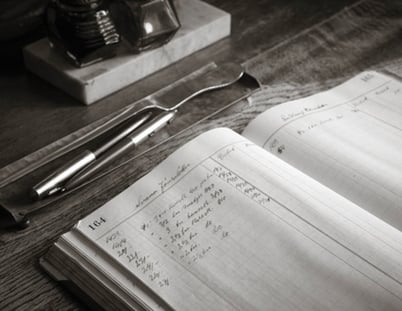The Purpose and Practice of General Ledger Accounting
Written by Eddy Hood
 As the name suggests, the general ledger is a key accounting document that provides a general overview of all of a company's accounting transactions. For companies who opt to outsource their accounting, many details of accounting methods can be left to the professionals. However, the general ledger is such a central document that any small business owner can benefit from understanding its form and function. At Ignite Spot, we strive to keep our clients well informed about their outsourced accounting and bookkeeping. For a small business owner, understanding how general ledger accounting works can be very helpful.
As the name suggests, the general ledger is a key accounting document that provides a general overview of all of a company's accounting transactions. For companies who opt to outsource their accounting, many details of accounting methods can be left to the professionals. However, the general ledger is such a central document that any small business owner can benefit from understanding its form and function. At Ignite Spot, we strive to keep our clients well informed about their outsourced accounting and bookkeeping. For a small business owner, understanding how general ledger accounting works can be very helpful.
A general ledger contains accounts covering the assets and liabilities that make up a business's activities. Typically, the accounts of the general ledger are sorted into five categories within a chart of accounts. These five categories are assets, liabilities, owner's equity, revenue, and expenses. Asset accounts normally include cash, accounts receivable, inventory, investments, and fixed assets. Liability accounts may include accounts payable, notes payable, and accrued expenses payable.
In general ledger accounting, a business's transactions are typically recorded using the double-entry bookkeeping method. In other words, every transaction is posted twice. Debits are offset by credits, assets are offset by liabilities, and losses are offset by income. The strength of this system is that by maintaining two columns for every account, all of the accounts can be checked for accuracy. Since it was first devised by a merchant in the 13th century, the double-entry system has been used worldwide by companies of all sizes.
In practice, the information found within the general ledger is used to produce various documents that depict a company's current financial state and track changes over time. Both the balance sheet and the income statement are derived from the information on the general ledger. The general ledger is used to prepare financial statements that may be used by the business owner, by shareholders, or for distribution to investors. A general ledger report shows all of the general ledger activity within a particular date range. A business might refer to a general ledger report from a certain month or quarter to assess the overall picture of the company's financial standing. In addition, reports derived from the general ledger can be used to identify any potential errors in bookkeeping or to guard against fraud.
Depending on the company, the general ledger may be maintained in a physical book or on computer software. Many companies opt to download software to quickly update the general ledger and to extract information from it into other related documents. In some cases where outsourced accounting is used, companies may access their general ledger online. Whether you use a paper or electronic version, no general ledger is complete without source documents, such as bills or canceled checks, to affirm its information.
At Ignite Spot, our firm strives to oversee the accounting needs of businesses large and small. Our services are reliably comprehensive. However, our approach is far from one-size-fits-all. From explaining the function and use of the general ledger to offering advice on accounting software, we aim to give all of our clients the highly specific attention they require.
To find out more about using a general ledger and all aspects of accounting that we cover, visit these links:
Learn More About Similar Accounting Topics:
Understanding the Accrual Accounting Method
The Difference Between Cash Basis and Accrual Basis Accounting
What is the Cash method of Accounting?
What is Activity Based Costing?
Affordable Care Act and Small Business Requirements
Generally Accepted Accounting Principles (GAAP)
Know Your Options in Small Business Finances
The Effects of Small Business Bankruptcy
How Do Small Business Loans Work?
The Importance of a Business Plan
Choosing the Best Small Business Credit Card
What is a Business Investment and How Should It Be Accounted For?
How Hard Is It To Get a Small Business Loan?
Understanding Different Entity Types
How Much Capital Is Needed to Start a Small Business?
Getting Involved in Business and Communicty Organizations
What are Business Liabilities?
What is Business and Financial Leverage?
Accounting Services
Small Business Resources
- Online Accounting Software for Small Business
- Business Payroll Services
- Things You Can Write Off On Taxes for Small Business
- How to Keep Track of Expenses Small Business
- Best Financial Software for Mac
- How to Have a Successful Small Business
- How Do Tax Deductions Work Self Employed
- Accounts Receivable Examples
- Expense Categories for Small Business









.png)



